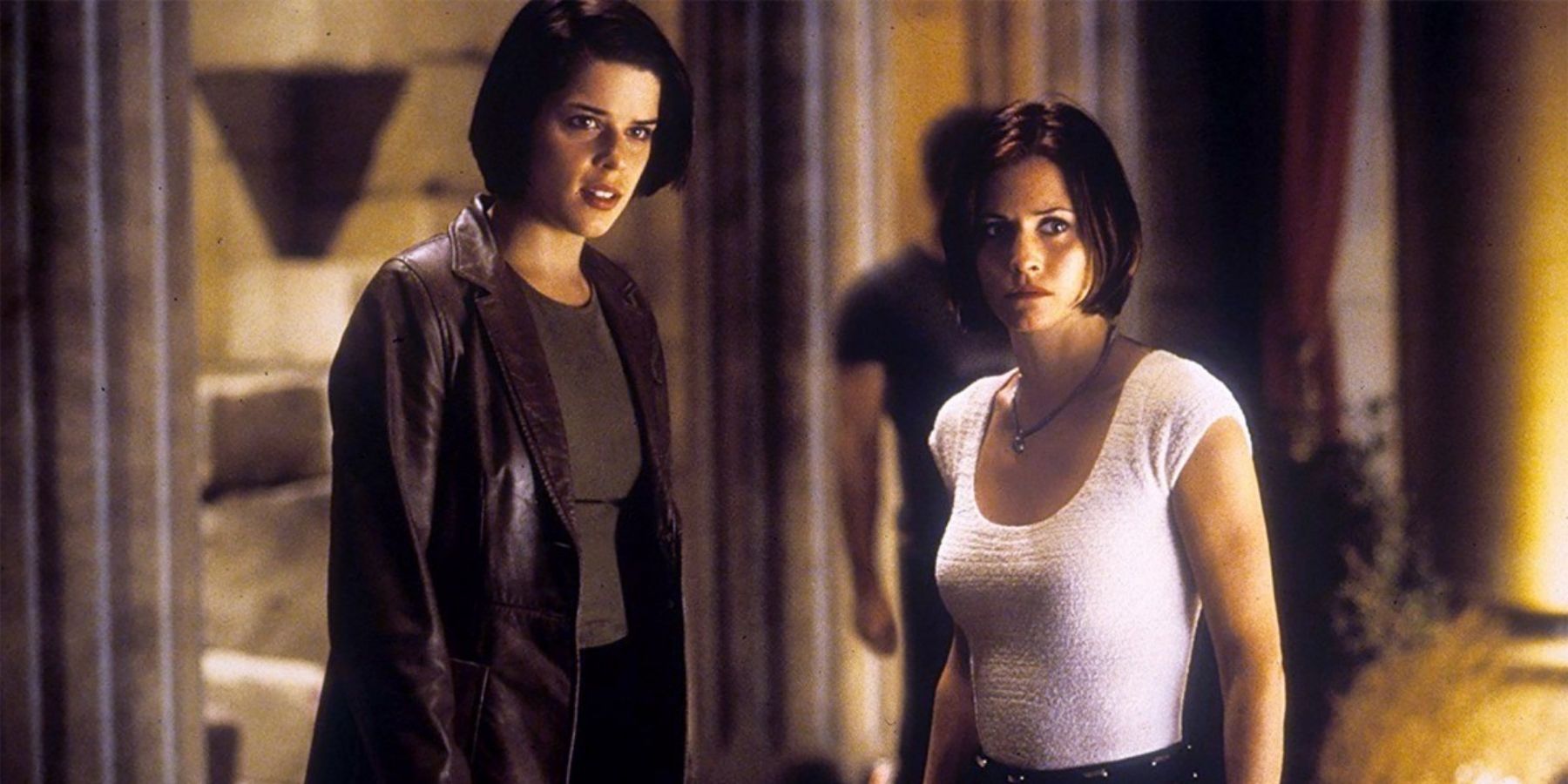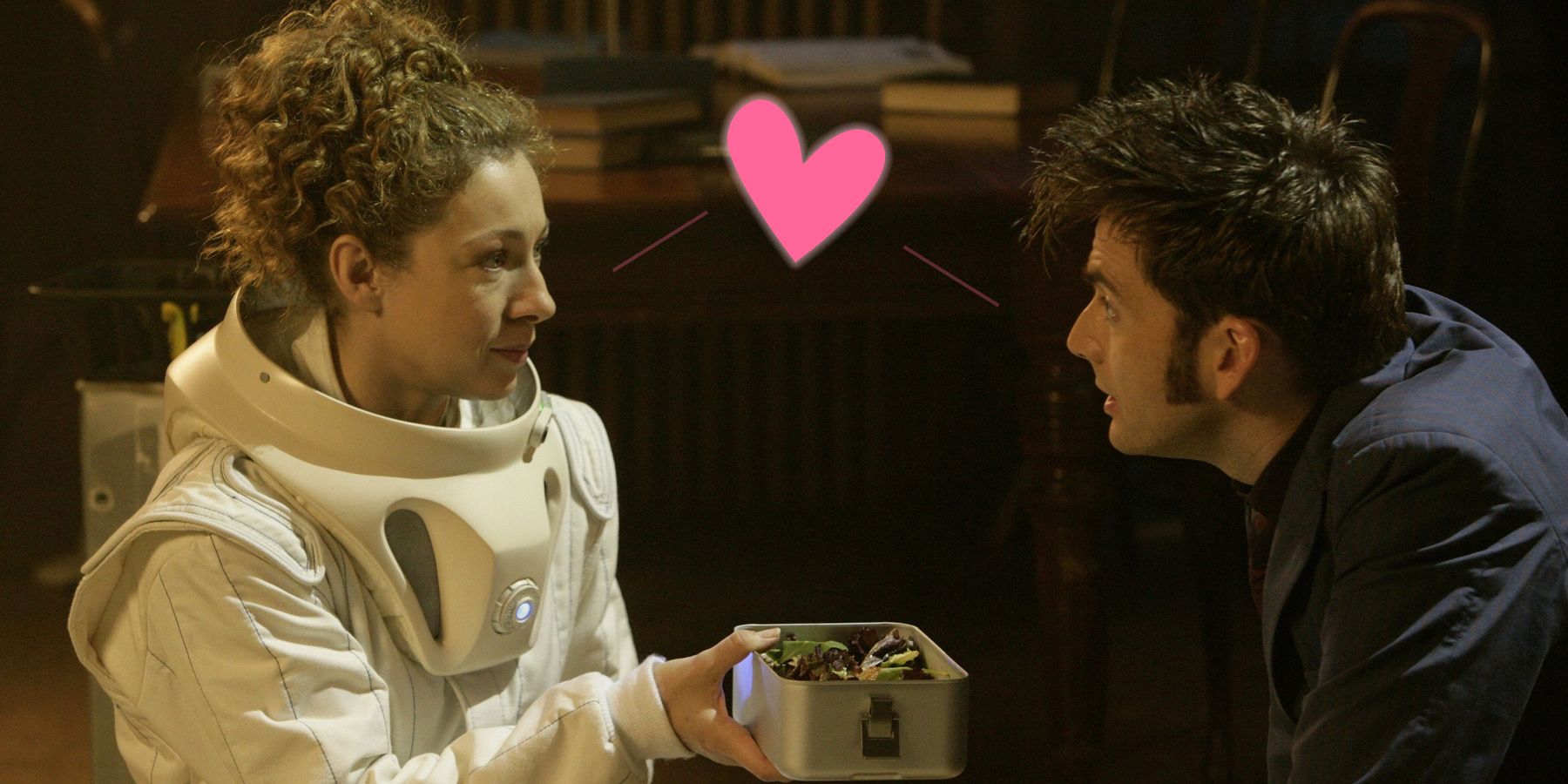Doctor Who, much like the Doctor himself, has a complicated relationship with romance plots: always flirting, never committing. Of course, between Daleks, Cybermen, and renegade Ood, Who has the time (or is it…the space)? Well, the Doctor does, apparently. Whether he is getting engaged to Marilyn Monroe, romancing Queen Elizabeth I, or just struggling to catch up while the TARDIS discovers kissing, the Doctor often seems to be entangled in romance. These are transient flirtations, usually — though not always — mined for their comedic value. Yet New Who made one serious attempt at a romance plot in the form of River Song, whose multi-season arc includes some of the series’ standout episodes. River herself is a delightful character (thanks in no small part to the incomparable Alex Kingston, who infuses River with relish and vitality), but her storyline suffered almost from the outset by writing that could not do the character justice.
Some viewers will immediately protest that romance is not what Doctor Who is about, but that objection ignores just how much of New Who is character-driven. Each iteration of the Doctor builds and refines the character, and the Doctor’s relationships with his companions facilitate relational storylines — not to mention the rich character drama that the writers have proven so deft at building and resolving within individual episodes. No, Doctor Who is about characters, and characters engage in romance plots. The Tenth Doctor (David Tennant), in particular, was notable for engaging in weighty, compelling romances — capturing the imagination of a French aristocrat, as well as her heart (“The Girl in the Fireplace”), experiencing the heartbreak of human connection with a schoolteacher (“Human Nature” / “The Family of Blood”), and letting his heart go on after losing a girl he meets on the Titanic (“Voyage of the Damned”). Tennant’s pathos shined as he invited the audience to invest in these relationships, even knowing that they were temporary.
Doctor Who had good reason to keep these romances temporary, however, as romance plots are inherently bound by considerations and caveats that would have weakened the show as a whole. As many viewers know, a good romance plot requires tension, forcing writers to either keep the participants apart or to escalate the threats to their relationship from outside forces. This kind of plotting would be untenable on a show like Doctor Who, which maintains nigh-untenable stakes already. Every serial threat must be more existentially dire than the last, and every unlikely rescue must elevate the near-Messianic figure of the Doctor himself.
One thing that the show got right in introducing River (and in re-introducing her, foregrounding her, and building her mythology) was to tie these romantic stakes into the season’s main conflict. Series 6 is as much River’s story as it is the Doctor’s, and the most significant moments in her arc are significant for the overarching plot. So what did the writers get wrong?
The premise of River Song is a sound one. The Doctor’s first meeting with River, in Series 4, is also River’s last encounter with the Doctor, giving a new twist to the Benjamin Button construct. Yet already there was a flaw: as Alex Kingston could not age backward. Her appearances alongside the Doctor were automatically limited by the degree to which makeup and lighting could cheat down her advancing age.
In developing River further in Season 6, Doctor Who’s writers gave themselves a workaround for this issue…then immediately revoked it. River, it turned out, could regenerate — like the Doctor, she could continue to appear in different forms throughout the show. This would have been a fantastic way to keep the character, with the added benefit that different actresses could be chosen based on their chemistry with different Doctors. Alas! In the same episode that River’s first form is introduced (“Let’s Kill Hitler”), River uses all of her regeneration energy to save the Doctor. This closes the circle of her life, with no possibility for other forms in the future.
The second mistake the writers made was to promise too much and deliver too little — an extension of an ongoing problem with Doctor Who. As Syndrome so succinctly put it in The Incredibles, “And when everyone’s super, no one will be.” This is how viewers experience mystery box plots: if every challenge is the most difficult the Doctor has faced, the audience ceases to hold its breath because viewers expect the Doctor to prevail. Tension relies on failure. The Doctor fails more than once during River Song’s run (in fact, her stint begins/ends with a failure), and that is a strength of her story. But the Doctor’s ultimate successes rely too much on River herself. To fulfill the many forecasts teased in previous seasons, the writers needed to integrate River into every major beat of the Series 6 story. They left themselves nowhere to go with the character, who became less of a character and more a collection of momentous reveals. What chemistry she might have with the Doctor is buried under successive twists, diluting her plot without developing her persona.
The good news here (for both River Song fans and romance fans) is that the show is not likely to deviate from its pattern. Whether resurrecting the Master as Missy or bringing back Russell T. Davies, Doctor Who cannot seem to help itself. River may not return (or she may!), but she is probably not the last epic romance the Doctor will have. By entwining River into the plot of the Silence, the writers also bound her singularity to a single story arc, a single season. Another story, in another season, might introduce another singular love interest for the Doctor.
In pursuing further romance, writers would be wise to plan the love interest beyond one season, especially if they intend to keep her around longer. In the short term, however, viewers should probably expect romance plots to remain self-contained, following the formula at which Doctor Who has proven most adept.






